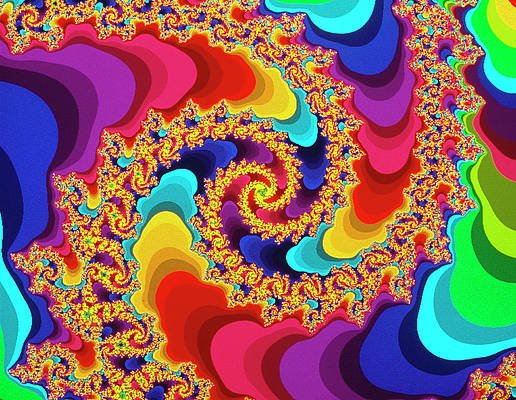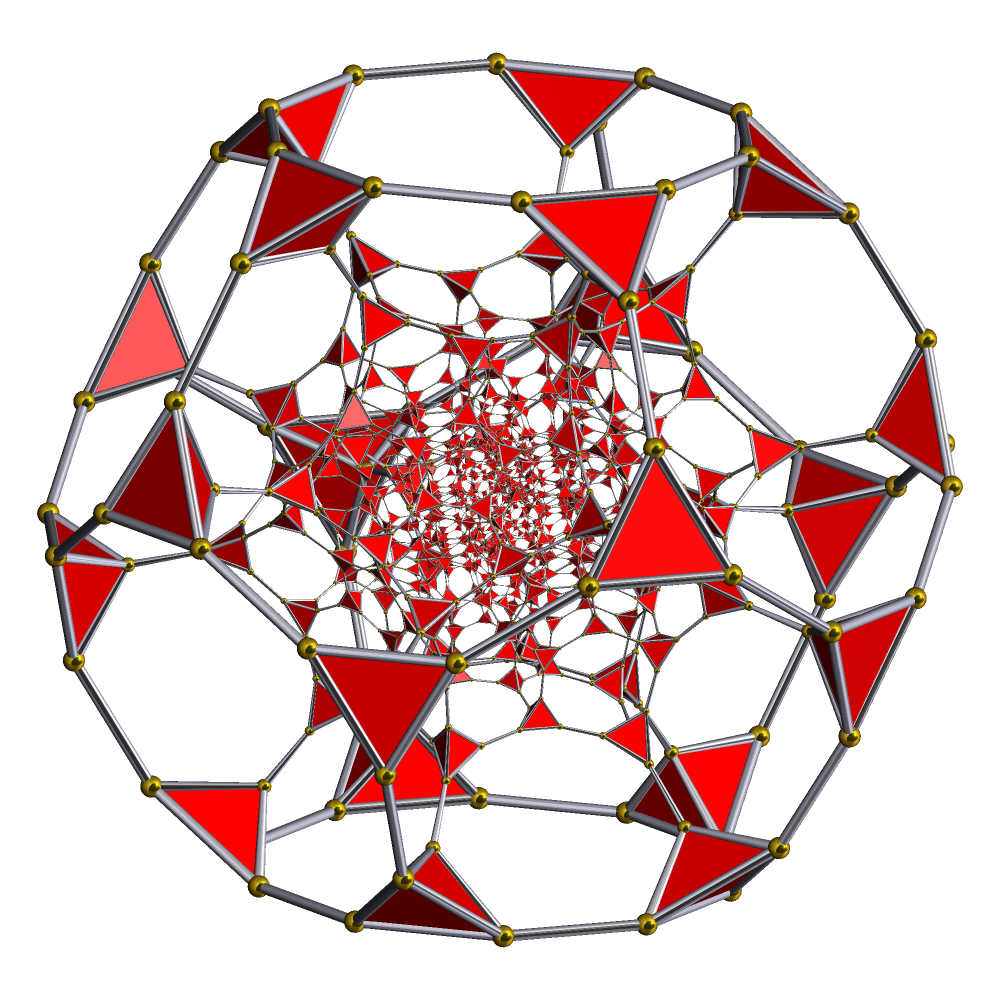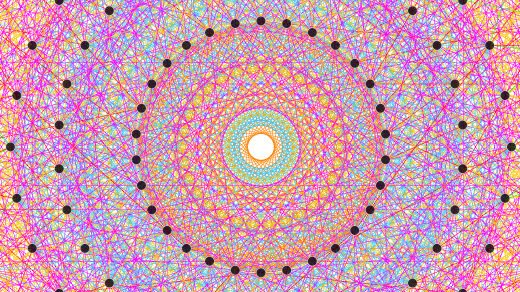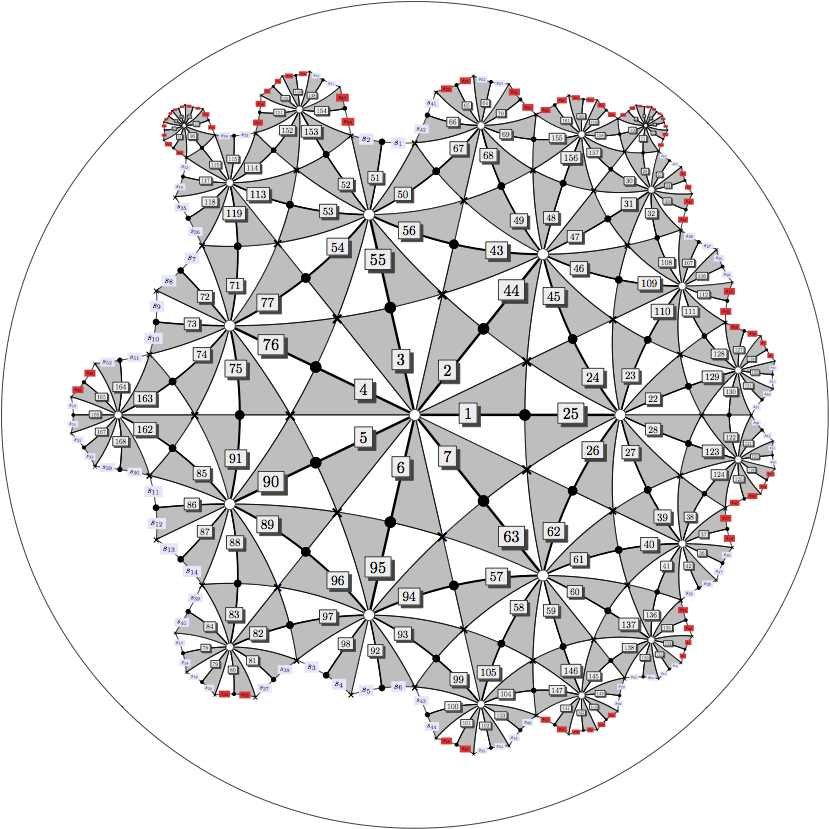Topics for Exploration
Mathematically, we plan to run several “parallel non-euclidean” tracks (i.e., sometimes intersecting!) for kids, teachers, and parents with topics that will include two morning sessions roughly split between algebra / computational and geometric / visual topics, and an afternoon session focused on hands-on activities.
Kids who will love this program will likely be enthralled by topics that include:
Number theory via computation & coding
Visual beauty of complex numbers
Topology of surfaces & knot theory
Calculus of skiing
Math games in non-Euclidean spaces
Probability & infinite series
Unsolved math problems
In a given morning, we may explore Fibonacci divisibility patterns by hand, by theory, and using Python. We may later ask the question: How many different ways can we color the edges of a dodecahedron using the colors red, green, and black? In the afternoon, we will try to tie regular heptagonal knots using strips of paper, build three-dimensional shadows of four-dimensional polytopes, and learn how to use topology and parity to perform amazing magic tricks.
Faculty members have also offered memorable plenaries to our entire community:
Paul Zeitz shared his views on today’s math curriculum and creative ways to teach bright and gifted math kids. He also shared his own personal journey as U.S. Math Olympiad winner, coach of the first U.S. team to ever get a perfect score on the IMO, and founder of the Proof School - one of the top math-focused schools in the world.
Ken Ono lectured to our campers on a new theorem in number theory (on a new class of prime-number generating functions) a month before he published it to the world. He also did a special viewing of The Man Who Knew Infinity, a movie about Ramanujan’s life for which he served as Associate Producer and mathematical consultant.
Po-Shen Loh gave a lecture on dice probability and combinatorics at the top of Rendezvous Peak at 10,450 vertical feet. He also presented on "How To Thrive In the Age of AI” where he explored how to lean into what makes us human, how to navigate the future landscape of education (including college), and how to learn how to solve unfamiliar problems.
James Tanton gave a lively presentation on his famous “Exploding Dots,” taking it from number bases all the way to polynomial division.
Ed Seidel presented on the intersection of mathematics, quantum computing, and Einsteinian physics, sharing how some of the leading edge mathematics in number theory from the last century are now impacting today’s study of our universe.
Andrew Chung presented on the superpowers that math-loving kids develop, taking campers on a journey starting at graph theory and combinatorics to applications in social media, genomics, venture capital, and entrepreneurial decision-making.
We may also have the children share some of their favorite explorations during their earlier mathematical journey to the group during the camp, from Level 3 Menger Sponges to Pascal’s Triangle.
Parents will be able to observe some of the children’s sessions, participate in talks with instructors to learn about their research and teaching, and spend time as a group sharing best practices on fostering their children’s love for mathematics. An important part of this will be experience sharing on specific mathematical explorations that have been meaningful to their children. We understand that you are members of a small, unusual, but beautiful community, and it is important to learn from each other. Daily parent group topics have included:
How You Support Your Child’s Love for Math – Extracurricular Math, Online Courses, Mentors, Summer Options
Philosophy of Parenting Gifted Children
Math Explorations by Campers
Applying a Mathematical Mindset to other Subjects and Activities







